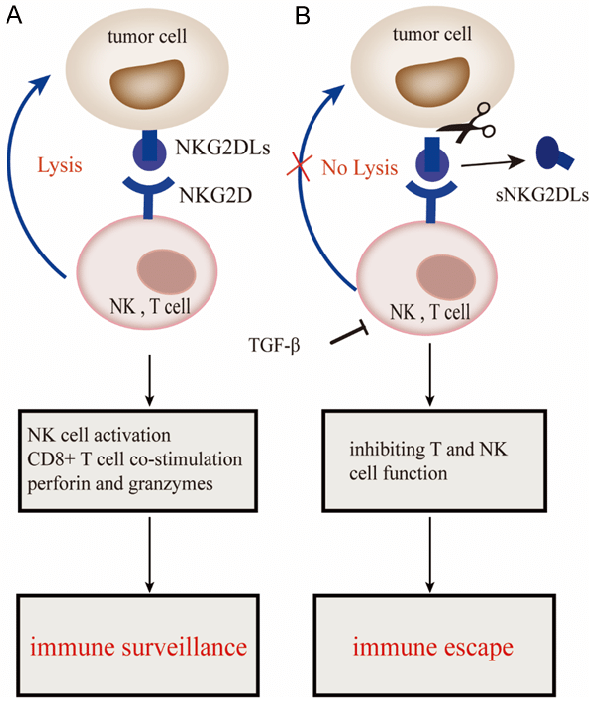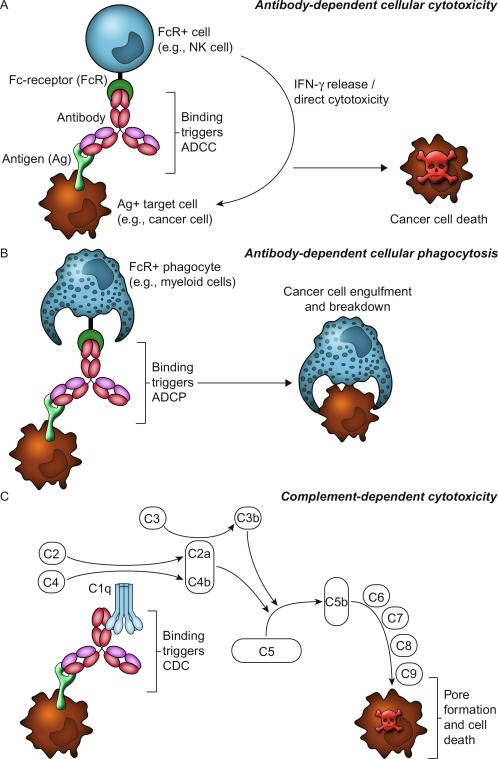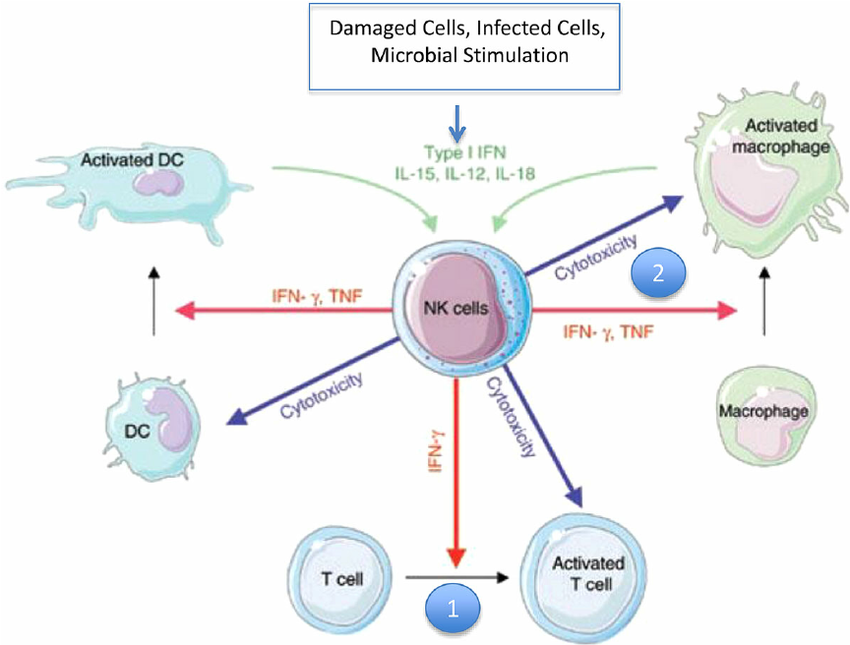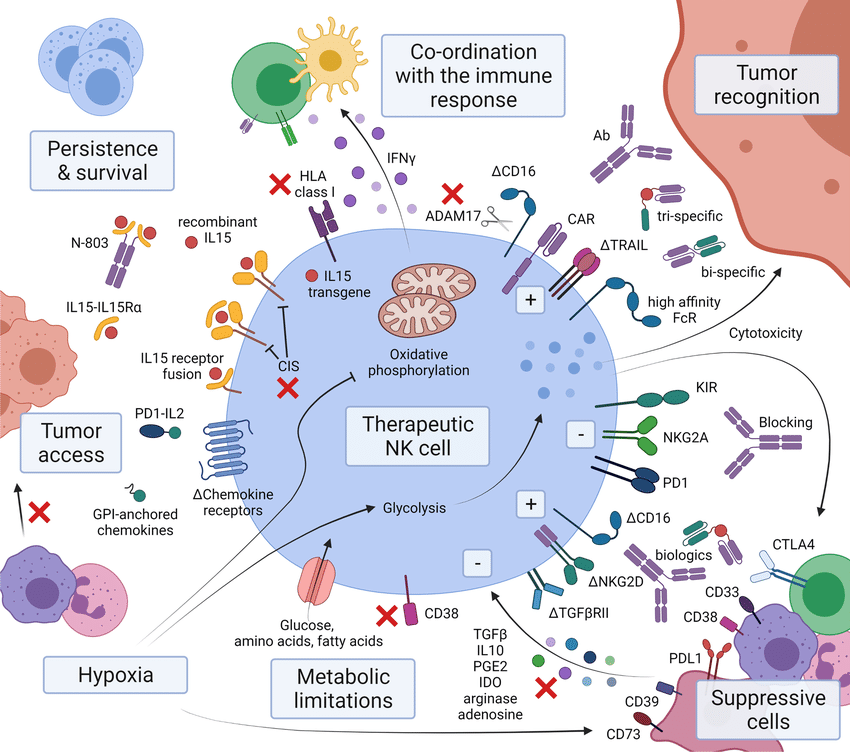Natural killer (NK) cells are a critical part of the body's natural defenses, acting as a first line of defense against infected and cancerous cells. Unlike other immune cells, they don't require prior exposure to a threat to recognize and attack it. This makes them attractive for cancer immunotherapy, which aims to harness the immune system to fight cancer.
Killing Cancer Cells
NK cells have several ways to directly kill cancer cells. They constantly assess a balance of signals from the target cell. Activating signals, like NKG2D receptors, recognize molecules often found on cancer cells. Inhibitory signals, like KIR receptors, interact with healthy cells' MHC molecules, preventing NK cells from attacking them. When activating signals outweigh inhibitory signals, NK cells launch their attack.
- Perforin-mediated lysis: Perforin creates holes in the target cell membrane, allowing granzymes (enzymes) to enter and induce apoptosis (cell death).
- Death receptor engagement: Fas ligand on NK cells binds to Fas receptors on target cells, triggering a process leading to cell death.
Antibody-Dependent Cellular Cytotoxicity (ADCC)
NK cells also work with antibodies to kill cancer cells. Antibodies can bind to specific molecules on cancer cells. Fc receptors on NK cells recognize the Fc part of these antibodies, forming a bridge between the NK cell and the cancer cell. This triggers NK cell activation and the destruction of the cancer cell.
More Than Just Killers
In addition to directly killing cancer cells, NK cells influence the overall immune response against cancer:
- Cytokine Secretion: Activated NK cells release cytokines, including interferon-gamma (IFN-γ), which activate other immune cells like antigen-presenting cells (APCs) and cytotoxic T lymphocytes (CTLs), strengthening the immune attack on the tumor.
- T Cell Regulation: NK cells can affect the balance between T cell activation and suppression. They can eliminate regulatory T cells (Tregs) that suppress the immune system, while helping beneficial T cells grow and function better.
Challenges and Strategies for NK Cell Therapy
Despite their potential, several challenges limit the effectiveness of NK cell-based cancer therapy:
- Tumor evasion: Tumors can hide from NK cells by reducing the molecules NK cells recognize or MHC molecules.
- Limited activity: The immunosuppressive environment around tumors can weaken NK cells.
Researchers are working on ways to overcome these challenges and improve NK cell therapy for cancer:
- CAR NK cells: Genetically engineering NK cells to express Chimeric Antigen Receptors (CARs) allows them to target specific tumor antigens, regardless of MHC, and boost their killing ability.
- Cytokine therapy: Providing cytokines like IL-15 can help NK cells grow and become more active.
- Antibody therapy: Antibodies that block inhibitory signals on NK cells can unleash their anti-tumor potential.
Many reputable suppliers, such as Maxanim, provide high-quality research reagents essential for advancing NK cell research and developing novel NK cell-based therapies.
The Future of NK Cell Therapy
NK cell-based immunotherapy has the potential to revolutionize cancer treatment. By addressing current limitations and optimizing strategies to harness their multifaceted anti-tumor functions, NK cells can become a powerful weapon against cancer.
The current advantages and limitations of NK-cell-based therapies are discussed in this video:




Natural Killer Cells in Cancer Immunotherapy